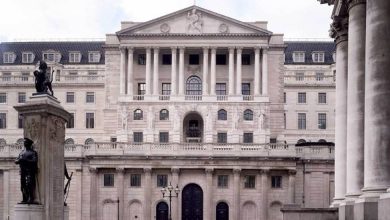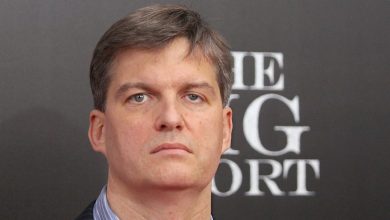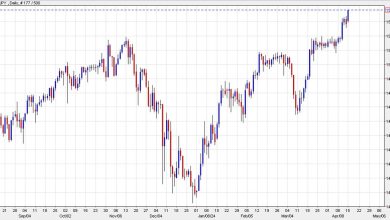Ukrainian war journalist doesn’t want to ‘face the devil’
Illia Ponomarenko grew up in the town of Volnovakha in the Donetsk region of eastern Ukraine. He was a student at Mariupol State University in 2014 when war broke out in Donbas and Russia annexed the Crimean peninsula.
Ponomarenko told Business Insider: “We were patriotic, we were enthusiastic. We felt that the country was in our hands and we wanted to make this country a better place after the revolution,” referring to Ukraine’s Revolution of Dignity, which ousted pro-Russian President Viktor Yanukovych in 2014.
Even though Ponomarenko, 32, said he himself was unable to serve in the Ukrainian army for medical reasons, he still wanted to help. So he took a notepad and a pen and started reporting on the war.
Ponomarenko subsequently traveled to the front lines countless times, first reporting for a local newspaper in Volnovakha before joining the Kyiv Post. He will then co-found the Kyiv Independent in 2021.
Ukrainian soldiers on the Dnipro River, September 14, 2023. Libkos/Getty Images
He said he survived a number of close accidents in the years since, including “the most dangerous two hours” of his life in May 2017, during a Russian mortar attack on Avdiivka.
Nearly five years later, during the Russian siege of kyiv, a tank shell hit the apartment building where he was living at the time.
But Ponomarenko did not flee. Rushing to report to the front lines was never a choice, he said, but rather a “duty” he felt obligated to fulfill.
Since the full-scale invasion of Russia in February 2022, Ponomarenko has become one of Ukraine’s best-known journalists, with around 1.2 million followers on X, formerly Twitter.
His messages are a glimpse of the man himself: brusque, determined and full of humor.
His first tweet after the Russian invasion: “That’s it, guys. See you in victorious Ukraine.”
That’s it guys.
See you in victorious Ukraine.– Illia Ponomarenko 🇺🇦 (@IAPonomarenko) February 24, 2022
“War causes people to reveal their true identities”
Ponomarenko was lucky to leave Ukraine after the Russian invasion launched.
He rushed with his girlfriend Natalia, some friends and his mother, who was still living in Volnovakha when the Russians crossed the border, to his girlfriend’s parents’ house near the border with Moldova.
But something was wrong with him. “I am a war journalist,” he writes in his new book, “I’ll Show You How It Was,” which is due out May 7. “I need to be with my soldiers now.”
A few days later, he returned to kyiv, where Russian troops were advancing rapidly.
“It was the best and most correct decision of my entire life,” he told BI. “I refused to make a deal with the devil. I followed my conscience.”
Ponomarenko said he believed the war had “shown what ordinary people were capable of” and helped reveal “their true identities”, citing Ukrainian President Volodymyr Zelensky as proof.
He said he had always been slightly skeptical about why the Ukrainian leader became president and his behavior in office, viewing him as a bit of a showman.
But he said the war brought out the best in Zelensky and transformed him into a leader.
He said the war also had a marked impact on his mother, who was staunchly pro-Russian before the invasion.
“She was one of many pro-Russians who saw what they needed to see,” he said.
Ukrainian President Volodymyr Zelensky during the European Political Community summit at the Palacio de Congreso in Granada, southern Spain, October 5, 2023. THOMAS COEX
Ukraine is suffering heavy losses on the Eastern Front, but it is not out of the fight, he said.
Ukraine has faced a series of major setbacks on the eastern front in recent months.
In February, as the war entered its third year, Ukrainian troops withdrew from the town of Avdiivka, an important strongpoint for the defense of the country’s logistics center in Pokrovsk.
Since then, Russia has continued to advance in the surrounding areas.
Last week, a Ukrainian mistake allowed Russian troops to advance and capture much of Ocheretyne, a village just northwest of Avdiivka, while the battle for Chasiv Yar, another crucial town in the Donetsk region, is also raging.
Capturing it would put Russian forces within striking distance of Ukrainian operational and supply centers in the region.
Ponomarenko told BI the situation was “catastrophic”.
“The six months of chronic and acute lack of defense aid, critical shortage of ammunition and manpower – the Russians are taking advantage of this momentum,” he said.
But, he added, “this is not an apocalypse. We are still in the game.”
Kyiv and Bucha: symbols of hope
Part of the problem, Ponomarenko says, is that Ukraine has lost the sense of unity and solidarity it had in the first months of the war – “convict rage,” as he calls it. .
“All ethnic, religious or social boundaries disappeared. A blue-collar worker could stand next to a minister,” Ponomarenko writes in the book.
But after more than two years of hard fighting, “the situation is naturally different today,” he added. “Large-scale mobilization had a significant impact on the morale of the population.”
Ukraine needs “a bit of the spirit of the battle of kyiv, this surge of patriotism and enthusiasm”, he said. “It was a shining moment of pure courage and hope.”
A man pushes his bicycle through debris and destroys Russian military vehicles on a street April 6, 2022 in Bucha, Ukraine. Chris McGrath
Ponomarenko now lives with his girlfriend in Bucha, a city known worldwide for the atrocities committed by Russian troops.
The journalist recalled his first visit to the city after Russia’s abandonment, noting that a “feeling of evil” and a “smell of death” spread through the streets.
Human corpses, limbs and dead dogs lay scattered on the ground. It was a “hellscape,” he said.
At the time, some were convinced Bucha would never recover, but returning citizens helped revive the town with a donation from the son of billionaire investor Warren Buffett.
Today, Ponomarenko says he can smile thinking about the city’s peaceful streets, its blooming flowers and the people strolling in its parks.
“Bucha was the biggest moment for me because it shows that life prevails,” Ponomarenko said. “Life always wins if only you keep fighting.”
businessinsider





